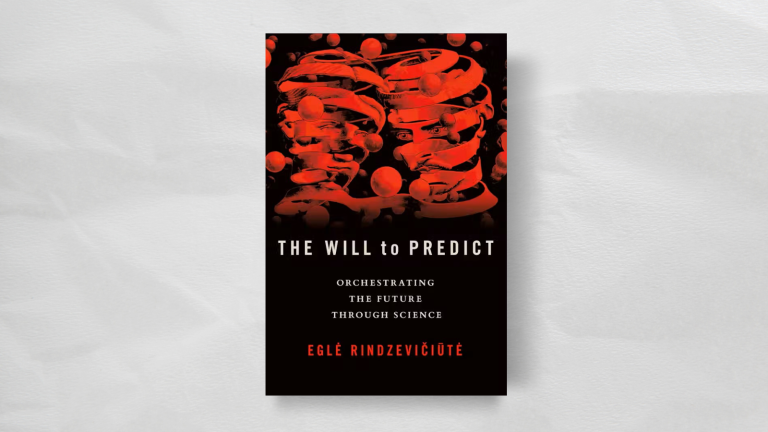The Will to Predict: Orchestrating the Future through Science
08 December 2023, 5:00 pm–7:00 pm

A UCL SSEES/IAS FRINGE Centre book event
This event is free.
Event Information
Open to
- All
Availability
- Yes
Cost
- Free
Organiser
-
SSEES
Location
-
Masaryk roomUCL School of Slavonic and East European Studies16 Taviton streetLondonWC1H 0BW
In The Will to Predict, Eglė Rindzevičiūtė demonstrates how the logic of scientific expertise cannot be properly understood without knowing the conceptual and institutional history of scientific prediction. She notes that predictions of future population, economic growth, environmental change, and scientific and technological innovation have shaped much of twentieth and twenty-first-century politics and social life, as well as government policies. Today, such predictions are more necessary than ever as the world undergoes dramatic environmental, political, and technological change. But, she asks, what does it mean to predict scientifically? What are the limits of scientific prediction and what are its effects on governance, institutions, and society?
Her intellectual and political history of scientific prediction takes as its example twentieth-century USSR. By outlining the role of prediction in a range of governmental contexts, from economic and social planning to military strategy, she shows that the history of scientific prediction is a transnational one, part of the history of modern science and technology as well as governance. Going beyond the Soviet case, Rindzevičiūtė argues that scientific predictions are central for organizing uncertainty through the orchestration of knowledge and action. Bridging the fields of political sociology, organization studies, and history, The Will to Predict considers what makes knowledge scientific and how such knowledge has impacted late modern governance.
With the participation of
Dr Egle Rindzeviciute, Associate Professor of Criminology and Sociology, School of Law, Social and Behavioural Sciences, Kingston University London
Professor Claudia Aradau, Professor of International Politics, Department of War Studies, King’s College London
Dr Irina Petrova, Lecturer in the Politics of Eurasia, UCL School of Slavonic and East European Studies
Dr Reuben Fowkes, Co-Director Postsocialist Art Centre, Research Fellow, Socialist Anthropocene in the Visual Arts, the UCL Institute of Advanced Studies.
Dr Maja Fowkes, Co-Director Postsocialist Art Centre, Principal Research Fellow, Socialist Anthropocene in the Visual Arts, the UCL Institute of Advanced Studies.
Introduced and moderated by Dr Michał Murawski, UCL SSEES
 Close
Close

